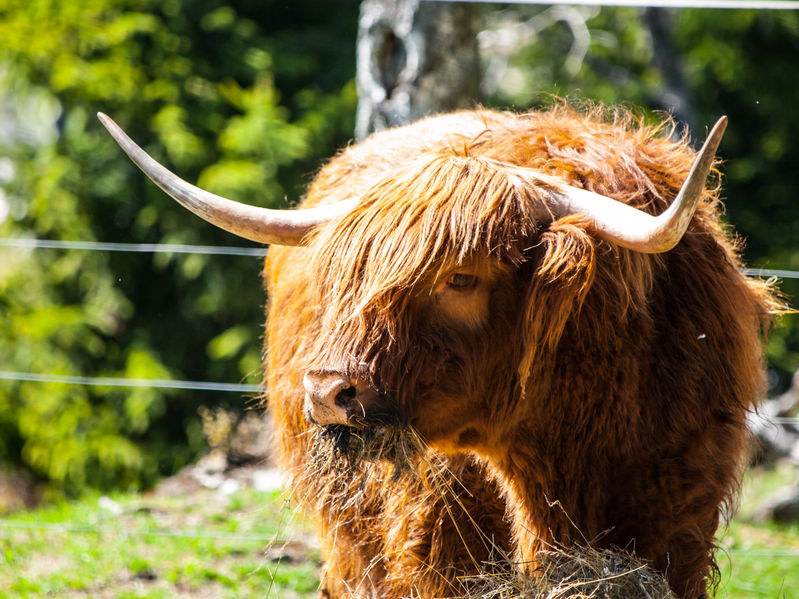
Farmers have been urged to adopt safe cattle handling techniques in a bid to reduce the risks to life and limb.
In the last ten years, 388 farmers, their family members or farm workers have been killed on British farms, while thousands more have suffered serious injuries and work-related ill health.
One of the UK's most well-respected trainers on farm safety, Brian Rees, said it is a "horrifying statistic".
Mr Rees, who is chair of the Wales Farm Safety Partnership (WFSP), said "every fatality, every injury, every illness is one too many."
The role of the WFSP, which is a collaboration between key agricultural stakeholder organisations in Wales, is to help raise awareness of the dangers of working on farms to reduce the risk of injuries and accidents to humans in particular, but also to livestock.
Mr Rees explained that handling cattle always involves a risk of injury from crushing, kicking, butting or goring.
He explained: “There are ways in which you can reduce the risks of accidents and injuries to you, your family and employees or to individuals visiting your stock, such as vets.
“The risk is greater if the animals have not been handled frequently, such as those from hills or moorland, sucklers or newly calved cattle.
“But attempting to carry out stock tasks on any unrestrained cattle or with makeshift equipment is particularly hazardous, so it is critical that we do all we can to alert farmers to the dangers, and try to prevent them putting their life or health in serious jeopardy,” said Mr Rees.
'Never underestimate'
In addition to emphasising the need to plan ahead when handling large animals, Mr Rees’ said farmers must "never underestimate" the risk from cattle, especially the protective instincts of a newly calved cow, even with good precautions in place.
He said the industry must always use proper handling facilities, kept in good working order, and use a race and a crush suitable for the animals handled.
He also said farmers could consider a rigorous culling policy for temperamental animals.
Lastly, Mr Rees urged farmers to avoid working alone, but if this happens, keep a phone handy.
He continued: “Statistics show that you are now six times more likely to be killed working on a farm than at a building site, so getting up to speed with all aspects of farm-safety is critically important for farmers of all ages.”
Recent livestock injuries and deaths include a Co Down farmer who was attacked by a bull last weekend.
In August last year, a 70-year-old cattle handler died after being crushed by a bull at a livestock market in Lancashire and a farmer in his 60s died after being trampled to death by a bull in North Yorkshire.
